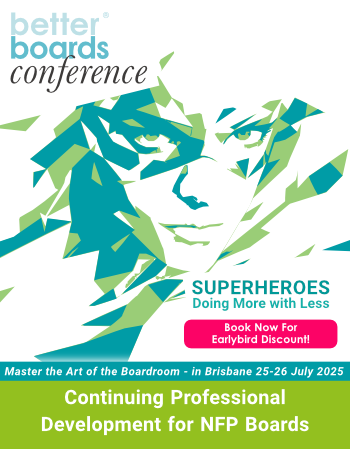leadership
Uncovering Your Purpose as a Leader
Published: April 7, 2024
Read Time: 4 minutes

When change is omnipresent, your leadership effectiveness is amplified, which is why it helps to have an acute understanding of your purpose as a leader.
How do we define this type of ‘purpose’ and why is it so important? How can you uncover it and create a plan of action?
We’ll look at several types of ‘purpose’ before honing in on what is meant by your ‘purpose as a leader’ and then I’ll outline how to uncover yours.
Flavours of Purpose
Navigating ‘purpose’ can be like entering a gelato emporium - there are many flavours to choose from!
Meaningful chats with friends may go as deep as purpose in life. Further along the purpose continuum is the purpose of your career, your profession, your role, your team, the projects you work on and the organisations you work for and with.
This latter one is in vogue right now with many organisations reviewing or refreshing their purpose statements - which only has value if they can excite and engage their people in it.
There are many flavours of purpose, but none of these on their own defines your purpose as a leader.
Defining Your Purpose as a Leader
According to John Kotter, leadership is about articulating a compelling vision, aligning people around it and motivating them to get there. Based on Kotter’s work, Nick Craig and Scott Snook define your ‘purpose as a leader’ as a snapshot of who you are and what makes you distinctive as an effective agent of change.
In other words, it’s less about holistic life goals and more about the lifelong passions, values and traits that make you who you are and what you apply to good effect in your work. It transcends or sits above the types of purpose discussed earlier.
For example, suppose you are a chief operating officer who is super-efficient and leads transformational projects with ease. What is it that makes you so effective? What is unique or distinctive about you? How can you easily communicate your passions and strengths to peers?
You could describe yourself as, say, “an efficient and effective operations leader”. It’s accurate but lacking interest and missing the essence of who you are.
Instead, what if your purpose as a leader was framed as “the prize winning sheepdog getting people to the right place every time”?
This might sound a bit silly at face value, but it’s memorable, easy to communicate and describes how you add value. Perhaps you grew up on a farm which is where the sheepdog analogy comes from.
Your mini-statement will be different from everyone else’s, and the real question is: How do you craft it?
Finding Your Purpose as a Leader
There aren’t too many strict rules about what you end up with, as long as it feels true to you and helps others understand what makes you tick.
Uncovering our true self isn’t always easy because we tend to become so embroiled in our work that it’s hard seeing the bigger picture. Not only that, we might feel compelled to exaggerate some traits and dampen down others.
The process requires taking a step back and seeing oneself through a pre-work, pre-adult lens. It’s an unfiltered view that helps in drawing out signature features and super-strengths.
Another part of the puzzle lies in examining responses to challenging situations: What experiences have been meaningful and what did you learn about yourself from them?
And another part of the process involves analysing situations where you feel in your element, or state of ‘flow’ as Mihaly Csíkszentmihályi would say.
These are some of the key steps in the discovery process that will help you get started, and I find there is a team bonding benefit when you have the opportunity to work through it with peers in small groups.
Next Steps
Having honed in on your purpose as a leader - a draft statement is fine - you can then apply some criteria to make sure it is a good fit and that you’re happy with it.
From there, writing a short explanation provides extra context around its meaning and a planning process identifies actions you will take to consolidate its power.
Yes, there is some self-work required, but once it is well-crafted and you have devised a plan to put it into action, your focus switches to achieving it.
It’s adding to your performance potential and lifting you up, greatly enhancing your ability to create a leadership legacy that you can be proud of and, at the same time, fulfilling the purpose of your organisation.
Share this Article
Recommended Reading
Recommended Viewing
Author
-
Purpose, Performance
& Innovation Speaker
- About
-
Phil Preston is a purpose strategist who helps leaders, teams and organisations turn ripples into waves of positive change through keynotes, presentations, workshops and programs. You can find out more about him via his LinkedIn profile or website.
Found this article useful or informative?
Join 5,000+ not-for-profit & for-purpose directors receiving the latest insights on governance and leadership.
Receive a free e-book on improving your board decisions when you subscribe.
Unsubscribe anytime. We care about your privacy - read our Privacy Policy .










